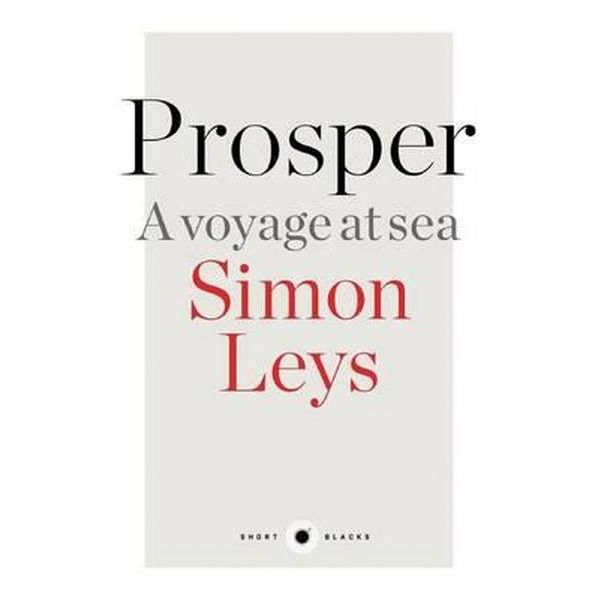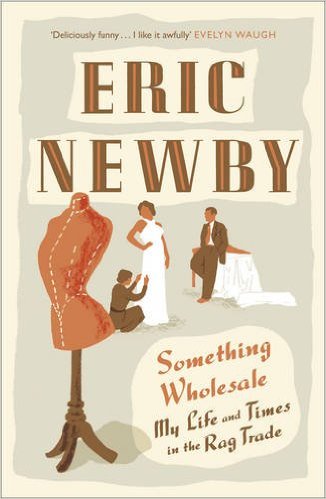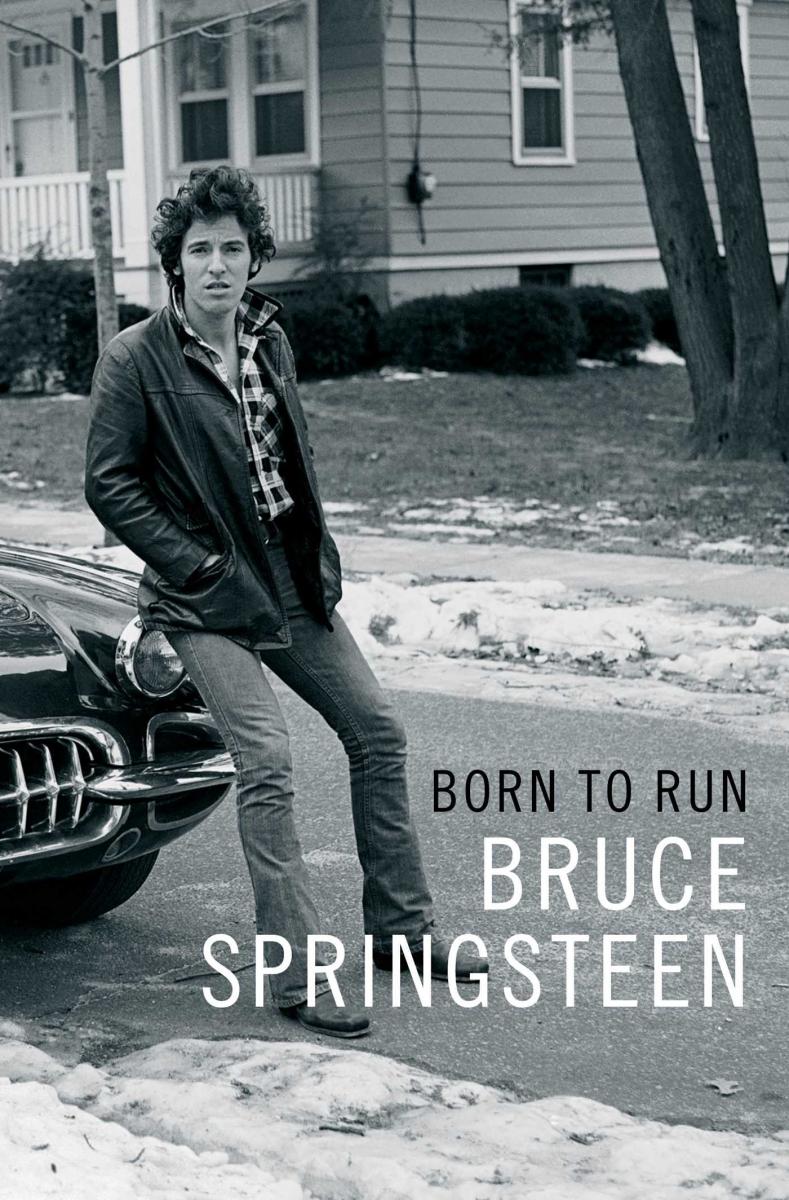- About Us
- Columns
- Letters
- Cartoons
- The Udder Limits
- Archives
- Ezy Reading Archive
- 2024 Cud Archives
- 2023 Cud Archives
- 2022 Cud Archives
- 2021 Cud Archives
- 2020 Cud Archives
- 2015-2019
- 2010-2014
- 2004-2009
 |
(Jan 2017) Five Memoirs |
Cud readers, let me stand you in good stead for your next trip to an online or ideally actual book shop with some reviews of my own recent readings, the initial, weak common thread--aside from the self-indulgent fact that they were on my list this year—is that all are memoir type non-fiction.
In order of length and indeed in order of relative thoroughness the books are as follows:
Prosper, Simon Leys ( aka Pierre Ryckmnans)
Aunts Up the Cross, Robin Dalton
Something Wholesale, Eric Newby
The Pigeon Tunnel, John Le Carre
Born to Run, Bruce Springsteen
I will spare the reader of this article my least favoured review technique, that of the plot summary, because it is bone lazy and because it is even more useless in the case of a memoir, linear or otherwise. What follows then is a bit of a feel for each work and an indication of your likely enjoyment. Suffice to say I endorse all of them and if you went and bought all five now I would be at peace but read on of course if you lack faith.
Prosper is the name of the last sail powered fishing boat on the coast of Bretagne (or Brittany) and is it is the Prosper crew that student Pierre Ryckmans joined for one mixed fated commercial fishing expedition. The rest of the province’s fishing fleet has been motorised but the captain of the Prosper isn’t interested in this modernisation. And neither is the author. In the first few pages the author describes the crew selection process which seems to involve knowing which bars to visit and seems not a million miles away from the pressing into service which filled out crews in British naval ships. The captain is a character in the book but so is the boat and so is the sea and so is the drunken sailor who leaves port solely for the purpose of leaving wine.
Ryckmans experience is that of a student but the writing is that of a wiser, older man. He lets us know up front that he is writing decades after from his notes and it is apparent that there is wisdom and hindsight at work. I cannot say when Ryckmans reached his sagacity but having read many of his essays and polemics I do not rule out that it was with him from the womb. The book is quite beautiful. It would barely take an hour to read and can be downloaded for less than the price of a macchiato… and so I see no point in telling you any more. I risk the review being longer than the book (also published in a compendium with Leys’ The Wreck of the Batavia, a topic which we can presume Leys deals with, with more insight than some later popular works on this subject. I did read a review in which the reviewer lamented that the author failed to account for social class properly as a framework for his analysis. I doubt it even entered his head to do so. I doubt he even thought he was analysing. I say to the reviewer, lighten up and enjoy the mood and the sentences. Surely that is enough.
Aunts Up the Cross, was written by Robin Dalton about her youth living in a large Kings Cross (Sydney) home which was also father’s medical rooms and was populated by the extended family implied by the title. It is a comic masterpiece by a woman who has written very little but has been the London literary agent for such writers as Iris Murdoch, Arthur Miller and Margaret Drabble and has worked with Peter Weir and Louis Malle. That she knows a good sentence when she sees one is no guarantee that she can form them and loads of them. But she can and does. This book is generally linear but it is her greatest hits. It is the collection of first and second hand stories, all of them gems, flowing from the great Aunts, from the patients who came to her father and from her own coming of age. Few people can tell a story, can get the verbal cadence right and read the attention span of their audience, ebbing and flowing as needed. Fewer can get this right on the page: having an ear for natural punchlines and knowing how to present them freshly in print is a rare skill. These are polished gems but not overly so. There is no hint of contrivance.
Understand that before the VietNam war, Kings Cross was, well, use the word you like, edgy, Bohemian, not quite fashionable or unfashionable...but it was not as boisterous and sleazy as it is today. Robin Eakin, as she was, grew up in one of the grand houses which dotted Potts Point ( some remain like Tusculum and Elizabeth Bay House) but which was demolished to make way for Kings Cross Railway station. As one exits the train station in 2017 there are two separate dedications engraved in the foot path on Darlinghurst Road to “the gun doc...(who) looked after the medical needs of the Sydney underworld as well as his regular patients.”.
He is a fabulous chap this gun doc. His sense of humour is as keen as it is appreciated by his daughter. But more as Dalton notes “ Everyone of course knew my father. The traffic policeman on duty held up even the trams for him ”. As well as having comfortably off patients from Sydney’s east “he was friend and counsellor to all the prostitutes on the Dirty Half Mile.”. I wish I had met him. You can meet him in this book which if it were only a selection of terrific stories it would be worth acquiring. Dalton does more and gives us a feel for the city as it was then.
I do not recall laughing more or as loudly in my own company with any book in many years.
In Something Wholesale, Eric Newby relates how on arriving home to London in 1945 after four years as a prisoner in what is now one of the peace- ¬¬loving former Yugoslav states he was judged to be without prospects and fell into a role in his father’s clothing business.
It is a segment of his life, before he became famous for his travel books: The Last Grain Race in which he sails to Australia on a four masted barque while 18 years old, A Short Walk in the Hindu Kush where he and his mate visit the remote Kafiristan familiar to some perhaps from the Kipling yarn, The Man who Would be King, and then Slowly Down the Ganges with his wife, she who came to his wartime aid while he was interned, helping with his escape no less.
This is again a freakishly funny book and if it is dated it is dated because it so well captures the time it describes. It is Upstairs Downstairs for couture, and it is as much about his father as it is about the last throes of what was becoming an oxymoron, English fashion. Newby senior is an unreconstructed British eccentric. This a man who between his wedding and the reception decided ad hoc that the conditions suited a row on the Thames so co-opted his sculling partner, handy as the Best Man, and went for a “good blow” of several miles. His bride waited if not patiently. If Newby had written about nothing other than his father to whom it is dedicated it would be a gem of a book, but just as Dalton builds the world around her family so does Newby around his.
I am not remotely interested in fashion but this is no handicap. Get this book and read it. It is quite unique.
And so to books published this year! Much has been written about them already and you may have seen it.
The reviews of The Pigeon Tunnel which crossed my path seemed to rather miss the point. They pondered that the work of non-fiction was by a master of fiction and should be treated with caution, something that would be obvious to all of us and then acknowledged explicitly by the author on page 6. Perhaps the reviewer went no further. These reviewers did not seem to attempt to answer the basic question: who if anyone is likely to enjoy this book? To which I answer, almost everyone who doesn’t hate reading.
Le Carre has not written an evenly weighted book which describes in one paced sequence his birth, growth, education and employment. He is as we know a novelist. He has not even written a book which an over-arching plot or unitary theme. What he has done is set down a series of anecdotes which partially illuminate who he is but also light up some other shadows, make some explanation of the psychology of the spy and of the novelist, and which by being fixed in relation to other historical events of which we know, have extra horsepower. And now I find my recurring unitary theme because the most interesting thing in Le Carre’s book is his father. Le Carre saves Ronnie to the last chapters and never really dissolves away the mystery that is his Dad. I dare not spoil this except to say that we join Le Carre as sleuth in his own written sub-episode of Who do You Think You Are. If you only read the first four fifths of this book to get to the chapters on Ronnie Cornwell you will be spending your time well, like enduring Pol Roger, oysters, Cabernet, rare beef, ripe cheese and a cleansing ale to get to the aged single malts. Such work!
Along the way dine on observations and insights and ferocious deconstructions of major political figures in more than one side of politics and more than one side of the Atlantic. We knew Le Carre could invent stories. We should not be surprised that he can organise, polish and decorate the truth. This is the most enjoyable book I have read in some time and it does not require much or any knowledge of his own body of work. Perfect enjoyment and I will read it again.
And more sins of the father, this time mostly sins of omission as Bruce Springsteen bares himself in Born To Run.  The initial and fundamental question is, if I am not a fan of Bruce’s music, should I read this book? For me this leads to a second question, equally fundamental. Why are you not a fan of Bruce’s music? And so why have you fallen for the myth that he did not exist before 1984 and Born in the USA? Why haven’t you wondered about the layers beneath this and the dozens of works of genius which never made a radio playlist?
The initial and fundamental question is, if I am not a fan of Bruce’s music, should I read this book? For me this leads to a second question, equally fundamental. Why are you not a fan of Bruce’s music? And so why have you fallen for the myth that he did not exist before 1984 and Born in the USA? Why haven’t you wondered about the layers beneath this and the dozens of works of genius which never made a radio playlist?
Let me just say a few things. He did not call himself The Boss but neither did some marketing department. He hired the band, he paid the band, so he was their boss. Lower case. And that before Born to Run were five near or actually flawless albums, no two the same. Two which did not make the Top 50 but which are still key planks of his live set. Instead of asking you to read the book I would rather to tell you to buy these albums. “Greetings from Asbury Park” on which he was hired to be the new Bob Dylan when the old one was only 31. “ The Wild the Innocent and the E Street Shuffle”. Seven songs, about seven minutes each and a supposed single without a chorus. “Born to Run” which made his reputation among music fans before “ Born in the USA” made his name for anyone near a radio. If these things mean nothing to you then the book won’t mean much more. But I can tell you that once again it is all about his father. Like most of us: trying not to be our fathers while trying to impress them nonetheless. Bruce’s dad was suspicious that music was a dead end career and suspicious of the limousines and mansions which came with success. Bruce seemed fine with the former and initially pretty unsure of the latter. Bruce’s dad clearly had a depressive illness of some kind and Bruce has been in therapy and on medication for ever. Adam Raised a Cain.
For benchmarking let me say that this book is competitive with Chronicles One ( Dylan), nearly as good as Keith Richards co- or ghosted Life. Miles ahead of Neil Young’s Waging Heavy Peace and as interesting to the fan as Stanley Booth’s True Adventures of the Rolling Stones.
I think this is a tremendous book but I would defer to the artistry of the review by Roddy Doyle, in the Irish Times: Roddy a writer assesses Bruce as a writer, not just of this book but of the songs which are in his view short stories worthy of Runyon and Carver, Bruce’s mini-movies and Bruce’s “opera out on the turnpike”. I let Roddy have the last word here.
I missed my stop on the Luas ( tram) because of Born to Run. I looked up from Springsteen’s description of driving across America in a blizzard and found myself at Citywest Campus station, five stops from where I needed to be. Tramps like us, baby, we were born to commute.
Or born to read.
